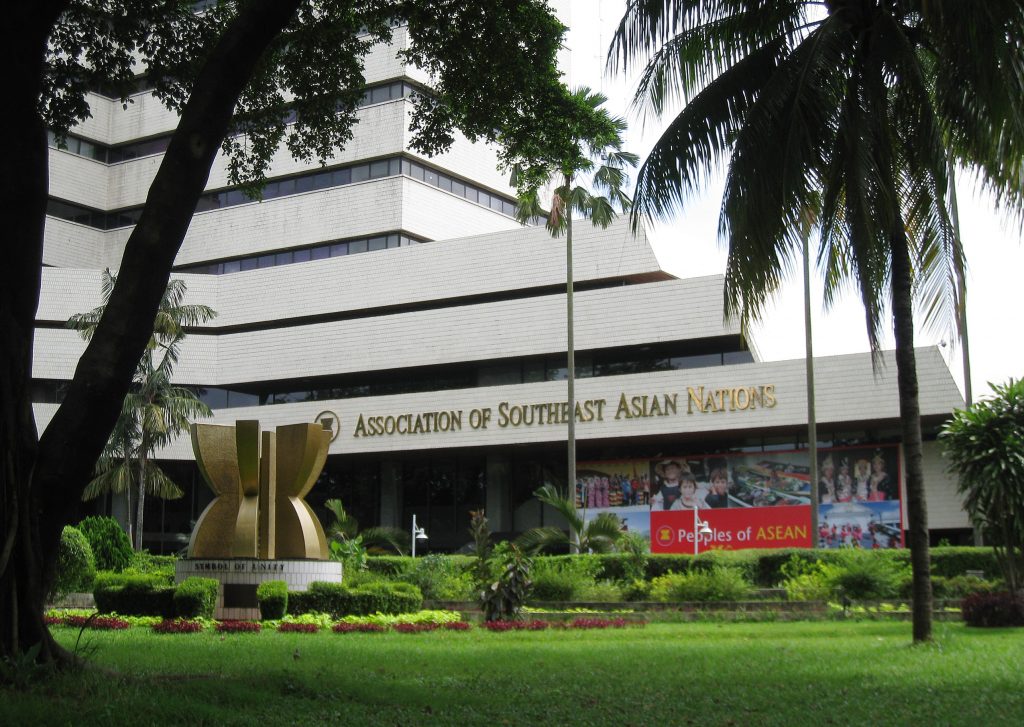Business and Economy
Asean+3 leaders hike IMF delinked portion of CMIM

FILE: The headquarter of Association of Southeast Asia Nations (ASEAN) in Jalan Sisingamangaraja No.70A, South Jakarta, Indonesia. (Photo By Gunawan Kartapranata – Own work/Wikimedia Commons, CC BY-SA 3.0)
MANILA – Asean+3 finance ministers and central bank governors have approved the hike of the delinked portion of the USD240-billion Chiang Mai Initiative Multilateralization (CMIM) after seven years from 30 percent to 40 percent.
In a joint statement for the 23rd Asean+3 Finance Ministers and Central Bank Governors’ Meeting issued Friday, the group dubbed as “historical achievement” the continued enhancement of multilateral regional swap facility “as a reliable self-help mechanism in the Asean+3 region.”
To further operationalize the swap arrangement’s operational readiness, the Finance Ministers and Central Bank Governors also decided to “institutionalize voluntary and demand-driven, for both requesting and providing parties, local currency contributions in the CMIM”, and to “clarify the CMIM Conditionality Framework for the IMF de-linked portion to enable the smooth implementation of the CMIM Arrangement.”
CMIM was established in 2009 to help members of the Association of Southeast Asian Nations (Asean) that are facing liquidity crisis or issues in their balance of payment (BOP) position.
It has a portion that is delinked from the International Monetary Fund (IMF)’s lending conditions.
The increase in the delinked portion means members of the Asean+3 can now access up to 40 percent of their maximum borrowing amount from the facility without the need for any IMF conditionalities.
The facility was initially available to Asean member-countries namely Brunei Darussalam, Cambodia, Indonesia, Lao People’s Democratic Republic, Malaysia, Myanmar, the Philippines, Singapore, Thailand, and Vietnam. However, it was also made available to China, Japan, and South Korea when they joined the group.
The statement said the pandemic caused by the coronavirus disease (Covid-19) has greatly affected both the human lives and economies globally.
“With the global economy increasingly interconnected, the disruptions to global supply chains and the challenges faced by many industries as a result of the pandemic have demonstrated the importance of ensuring the resilience of our economies to shocks,” it said.
Thus, authorities “move swiftly to mitigate the impact of the pandemic by deploying extraordinary measures in the forms of targeted fiscal, monetary and credit support to households and corporates, and accorded regulatory forbearance, as well as liquidity support, to the financial system.”
It said that while signs of recovery continue to show risks remain “given the uncertain trajectory of the Covid-19 pandemic.”
It said Asean+3 officials “are taking steps to reduce vulnerabilities to these risks and are determined to continue to use all available policy tools to support the sustained recovery of our economies.”
“We will carefully measure the appropriate timing of the exit from these pandemic measures in accordance with the economic and pandemic situation of each member, to avoid a cliff effect and safeguard growth and financial stability in the Asean+3 region. We will remain resolute in our commitment to uphold an open and rules-based multilateral trade and investment system, and strengthen regional integration and cooperation,” it added.





















